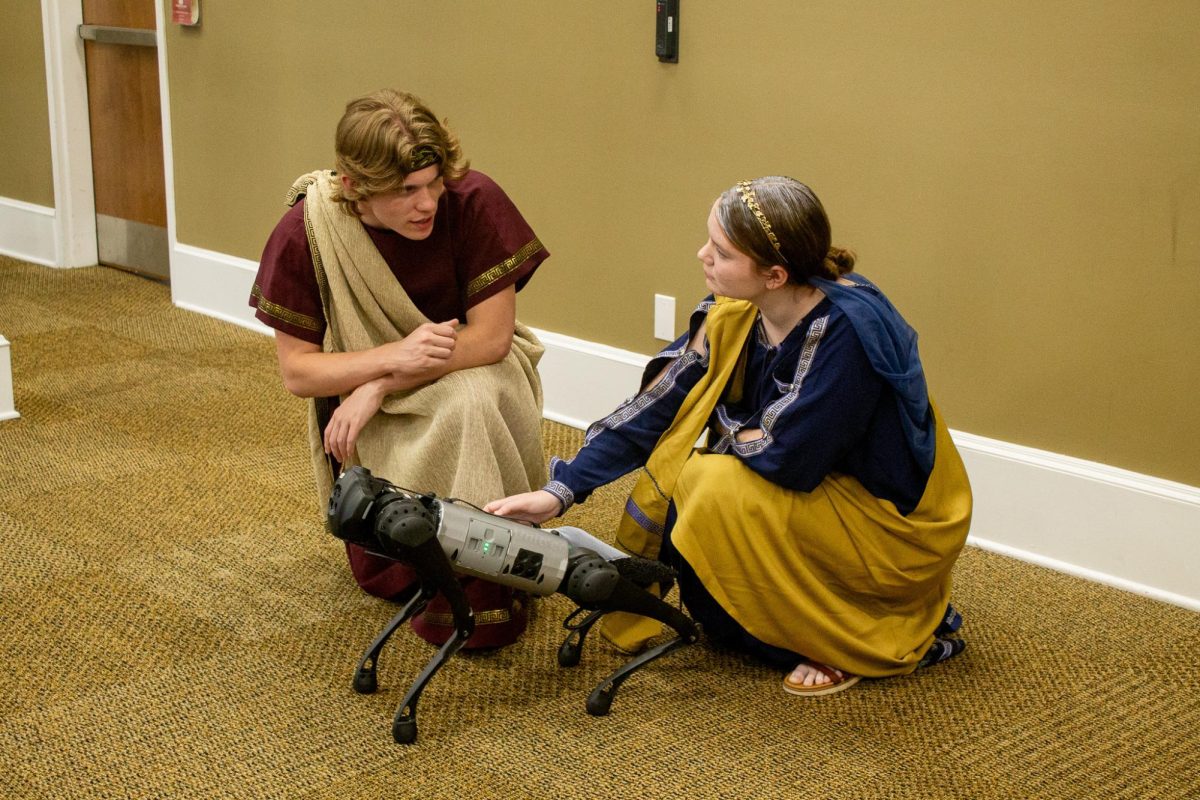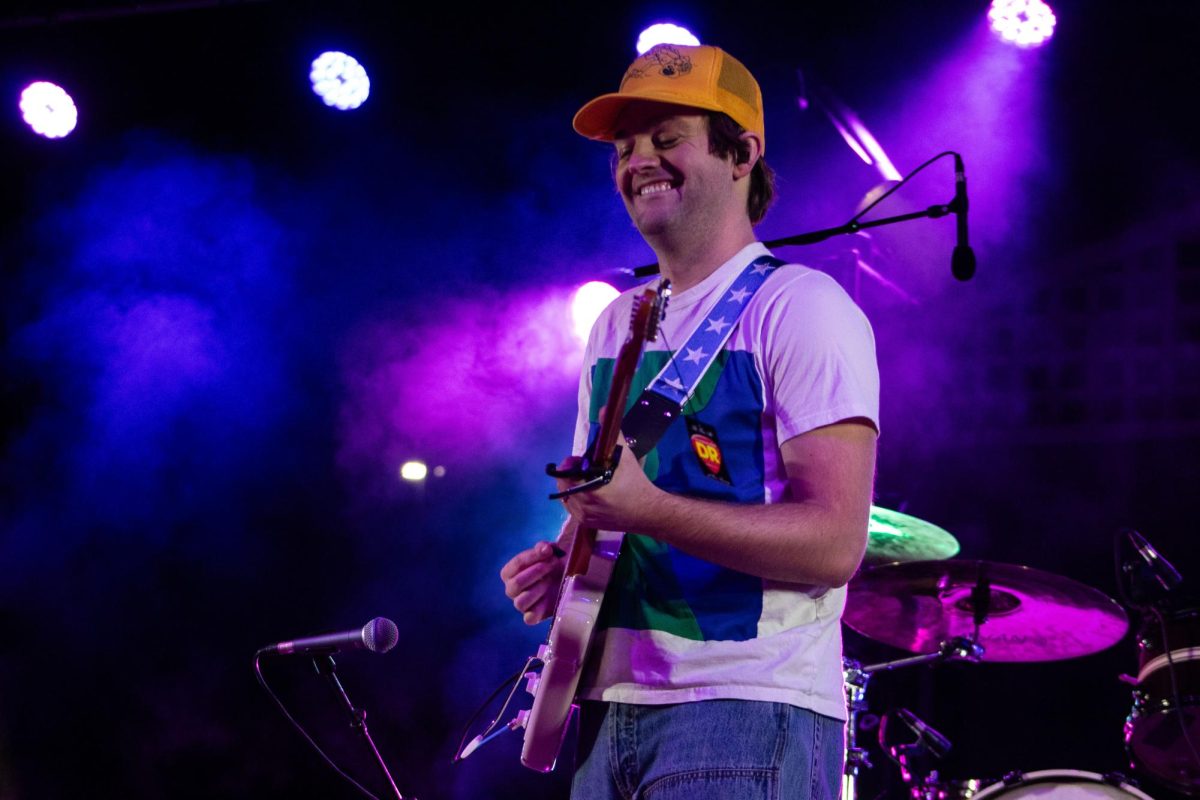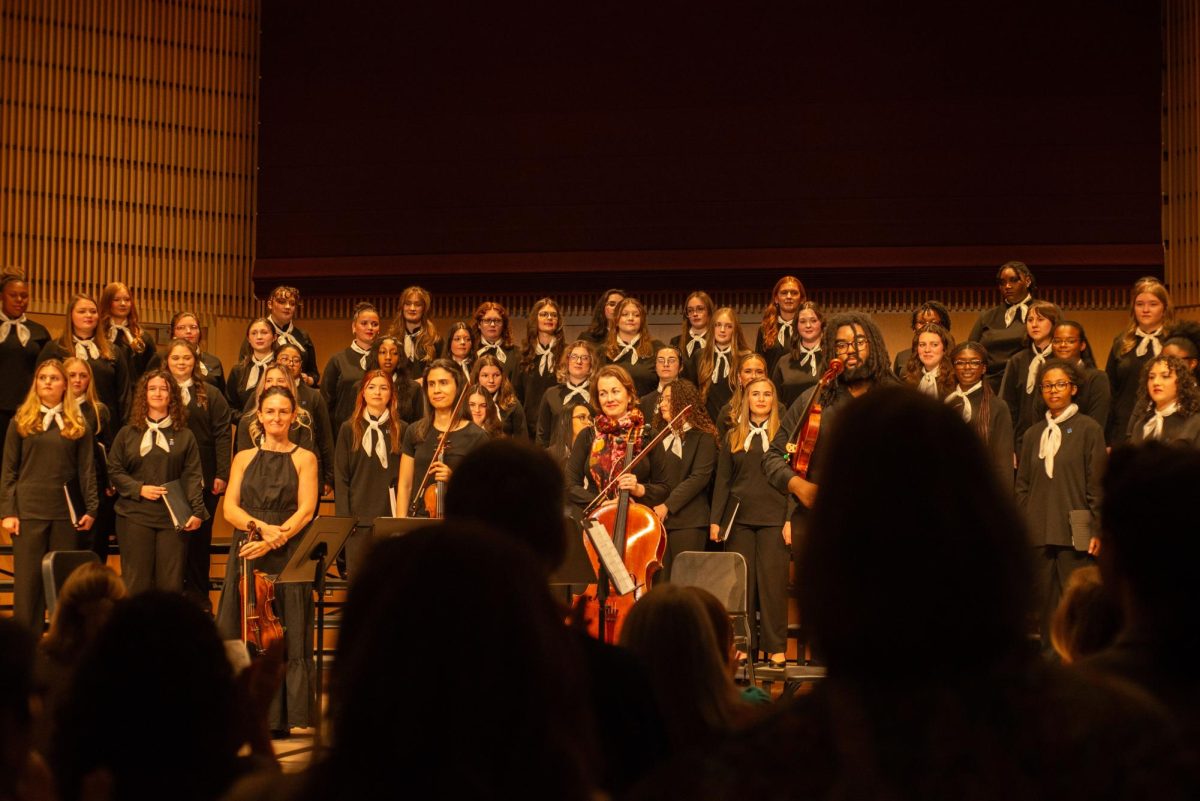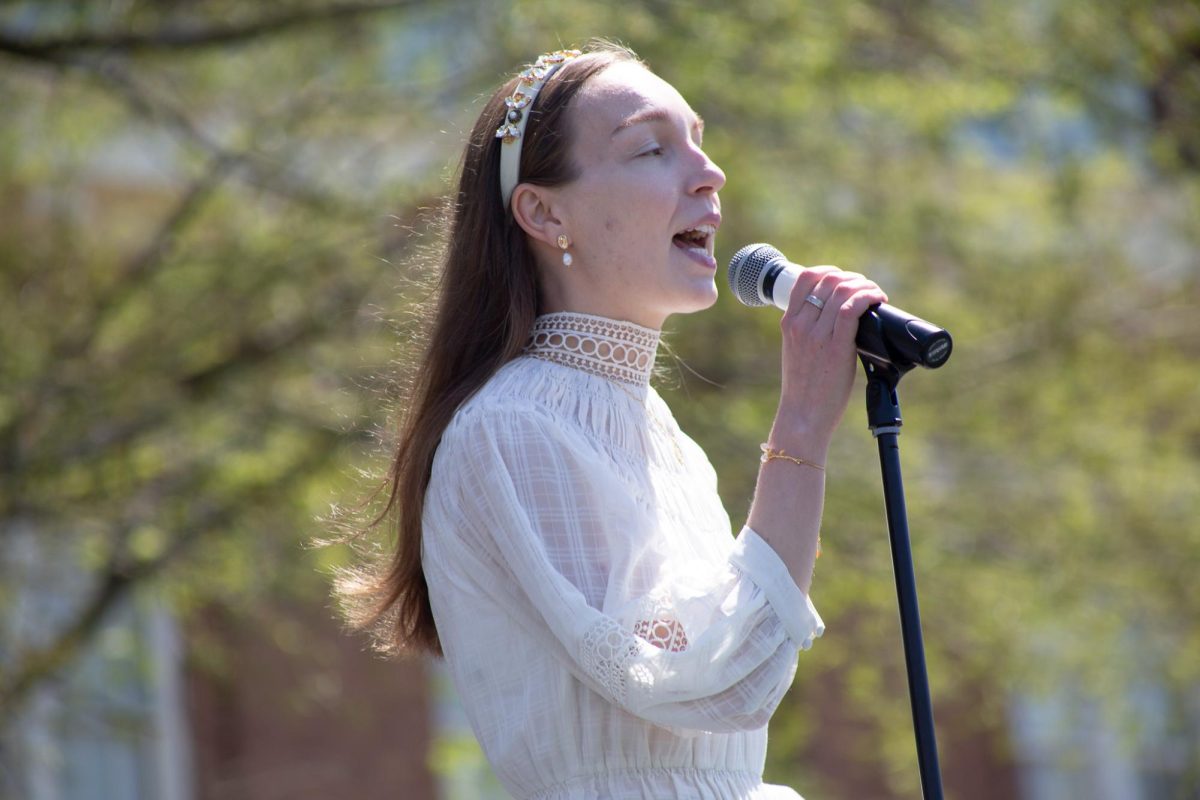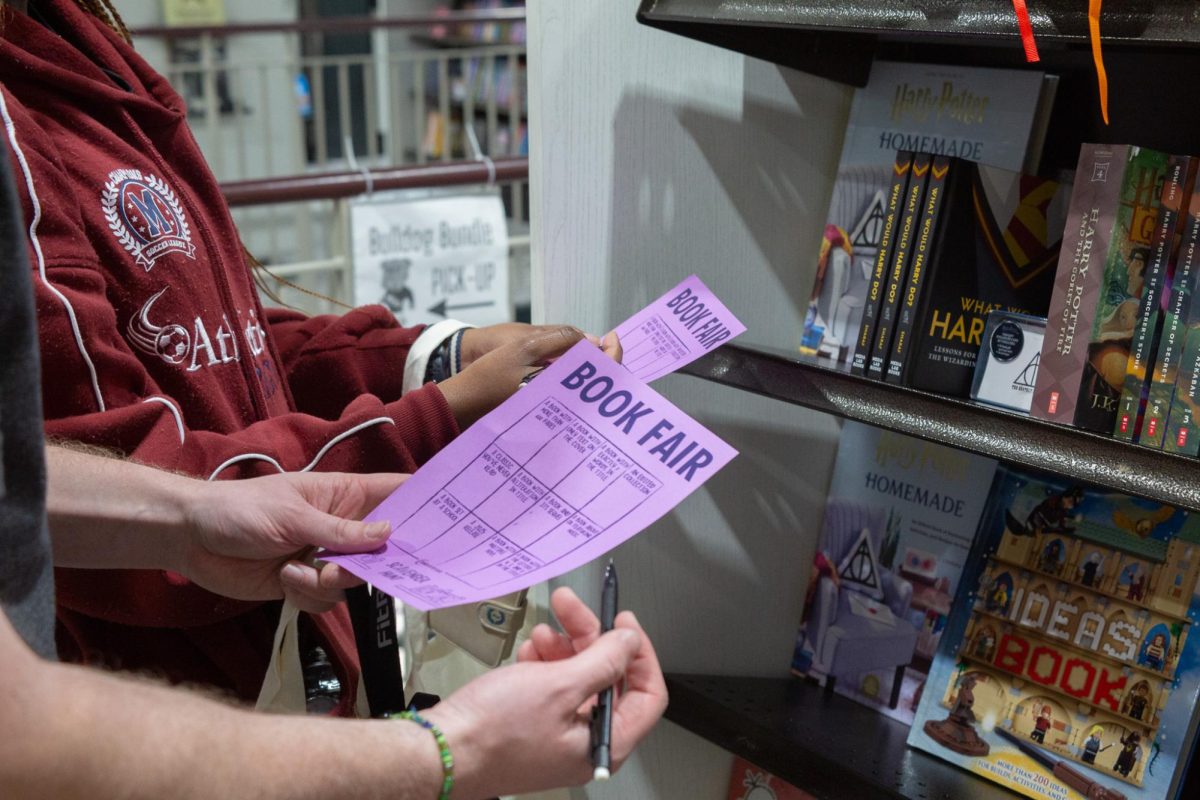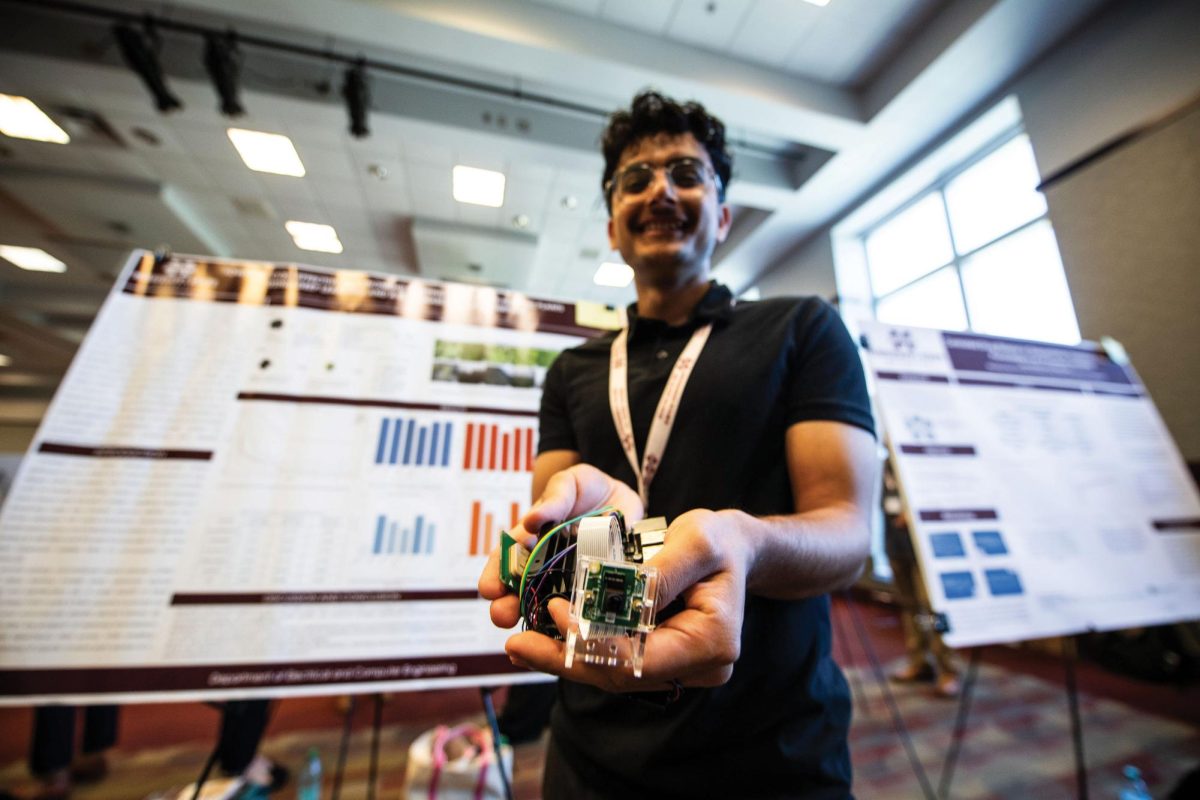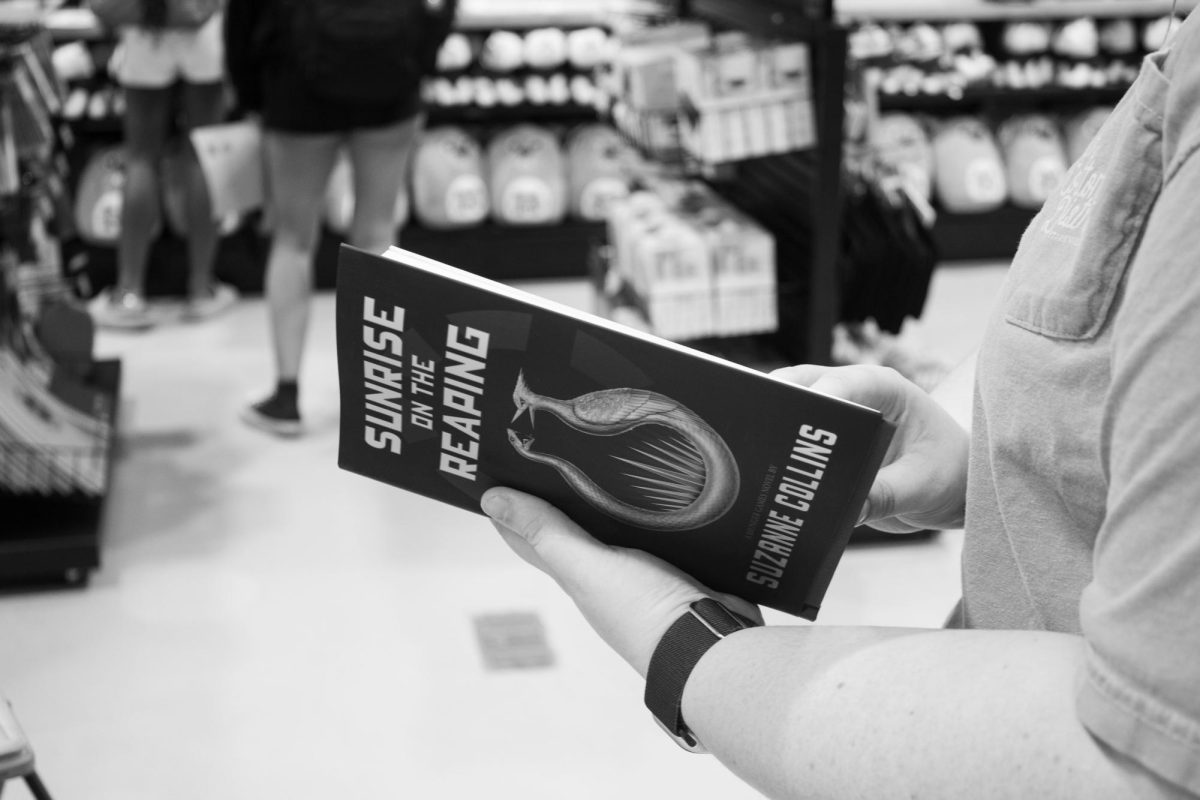Three robots and a cast of Shackouls Honors College students will make their debut performance of the Latin comedy “Trinummus,” also called “Three-Dollar Day,” by the classical Roman playwright Plautus in Bettersworth Auditorium in Lee Hall at 6 p.m. Sept. 24 and 25.
The production, which is a collaboration between the Honors College and Mississippi State University’s Department of Computer Science and Engineering, will kick off MSU’s annual Classical Week.
Director Donna Clevinger and Computer Science and Engineering department head Shahram Rahimi said they hope the production will display the importance of arts integration, uniting art and technology in a way that will inspire future students.
“This integration affects so many people, and we don’t even know it yet,” Clevinger said. “There are students who love art but also technology. This proves that you can combine the two.”
Rahimi also said that the collaboration serves as proof that technology and art can work together.
“This is fantastic,” Rahimi said. “We think there is a huge connection between technology and art. This is proof. Our faculty and students are so interested in continuing this collaboration and creating opportunities for the future.”
Stephen Weathersby, a sophomore electrical engineering major, said he is excited for the show and spoke about his experience watching the production come together.
“I get a rewarding feeling from the fact that this is something me and a whole cast of people put great time and effort into,” Weathersby said, “which is currently becoming this amazing production before our eyes.”
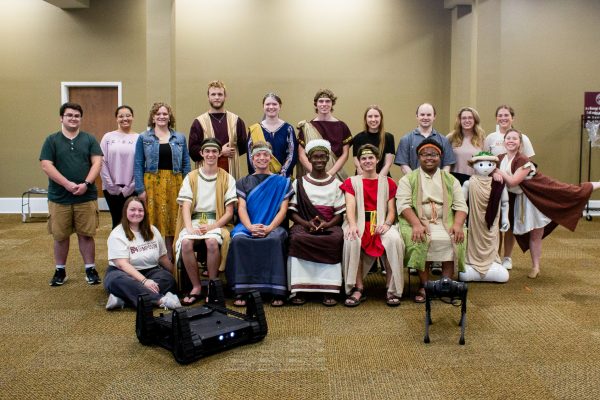
Clevinger said she had the idea to incorporate technology into production six years ago, but her efforts were stalled until she met Rahimi.
“Finally, I found Dr. Rahimi,” Clevinger said. “He opened the door for me to put together a play that engaged not only humans with humans but humans with robots. I found a beautiful piece of property over 2,000 years old in ‘Trinummus’ that was able to be transformed to include not only one but three robots. I have been working since January with incredible students to go through everything with the robots.”
Zach Henkel, a doctorate student in the computer science department, and Kenna Henkel, a master’s student in the same department, are two students who have worked to make Clevinger’s vision come to life.
Zach Henkel worked to develop the technology to support the robots’ movements, making them function in a stage environment while Kenna Henkel worked on the robot’s voices.
“I have been working a lot with the vocal inflections and the quality so everyone can hear the lines. We spent a lot of time getting the right sounds for the voices, for the characters these robots use in the play,” Kenna Henkel said.
Kenna Henkel said that generative AI was used to collect data from previous works and create a way for the robots to mimic human emotion in their speech.
“Generative AI takes a massive amount of previous data from television shows and movies, and the machine then learns about that — what certain words or motions mean for humans,” Kenna Henkel said. “Using all that data, there are models that can recreate the words you ask them to say along with how those tagged emotions usually sound. It is generating a novel thing, not copying anything directly.”
Clevinger thanked Kenna Henkel and Zach Henkel for their hard work specifically.
“They had to encase themselves in these beings. Kenna worked hours and hours on the inflection with these robots, so the robot expressed emotion. Zach would work with the movement that went with the sound,” Clevinger said. “We as humans just do it, but with robots, every little thing has to be programmed. It is amazing. It takes a lot of time and commitment to do something as huge as this.”
Plautus’ comedy features a spendthrift son, absent father and a business deal. Students like Hays Romano, Stephen Weathersby and Margaret McCord will take the stage alongside the robots to perform the plot filled with jests.
Margaret McCord, a sophomore art major, reminded audience members to pay attention to the comedy in the production.
“This play is so full of shenanigans,” McCord said, “so pay close attention or you might miss something.”
Because of the technology being used, the doors will close promptly at 6 p.m. once the show starts. Audience members should arrive early to ensure they do not get locked out of Bettersworth Auditorium.
Immediately after the one-hour show, the cast and crew will conduct a talk to get instant feedback about what people liked and did not like about the production and its technical elements. There will also be a QR code to scan and give feedback.
Audience members will have the opportunity to watch a play from the distant past that incorporates new technology that could shape the future of theatre and arts integration at Mississippi State University.
Sophomore political science major Hays Romano said that he expects the show to impress.
“I want audience members to come with high expectations because I am sure they will be exceeded,” Romano said.


